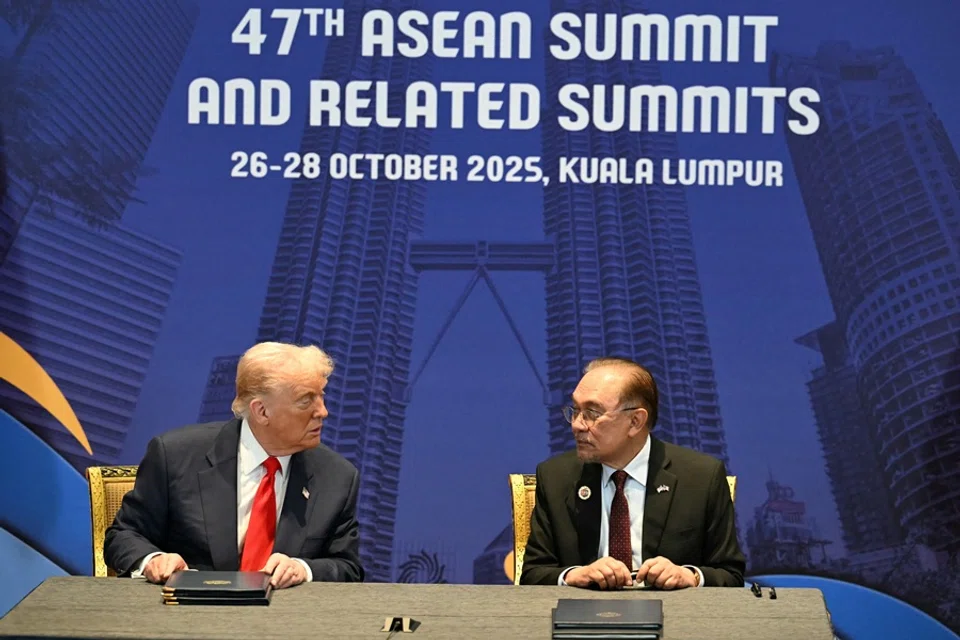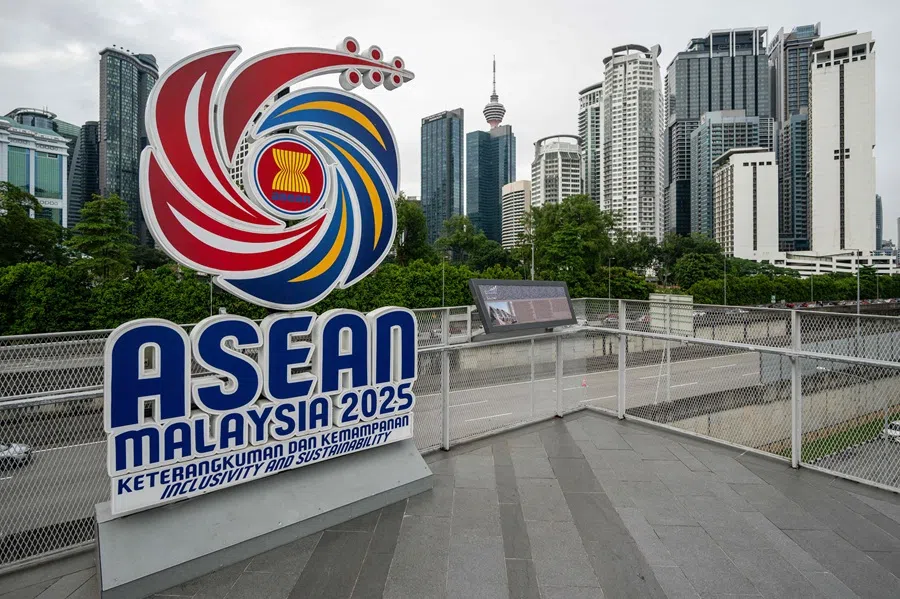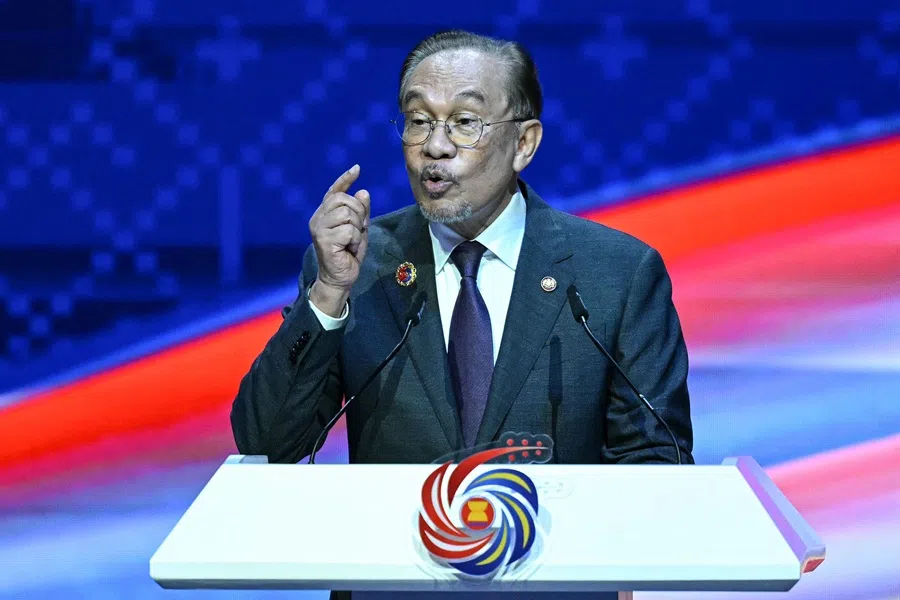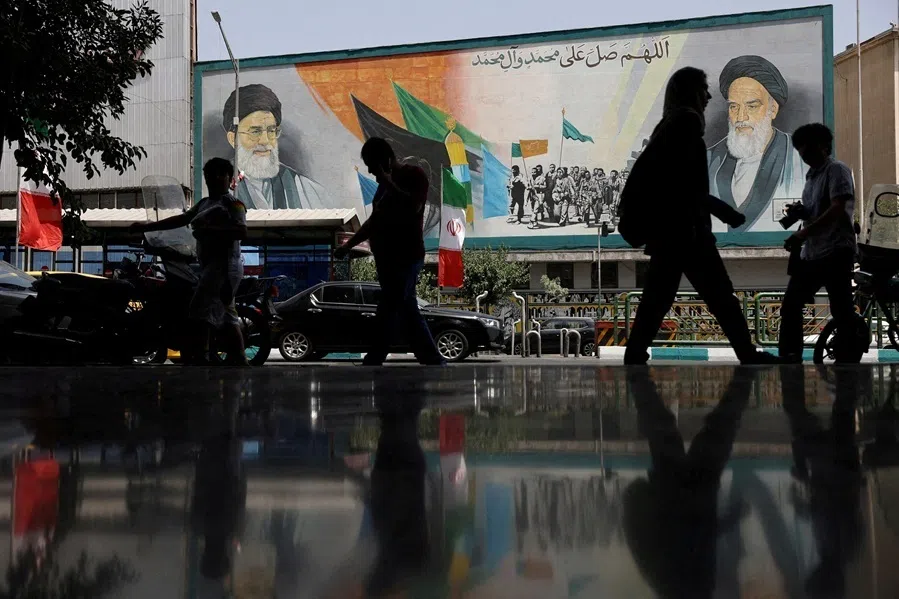Malaysia-US rare earths deal: Gold or poison?
Malaysian Prime Minister Anwar Ibrahim certainly has his hands full after being accused of selling out Malaysian interests by signing an MOU on critical minerals with the US. How will Anwar balance both domestic criticism and his desire to develop Malaysia’s rare earths industry? Malaysian writer Anthony Chong tells us more.

Malaysian Prime Minister Anwar Ibrahim and US President Donald Trump have recently signed a reciprocal trade agreement between both their countries, along with a Memorandum of Understanding (MOU) about cooperation related to critical minerals. For this, Anwar has been criticised for “selling out sovereignty”.
This article focuses on the MOU concerning critical minerals, which include rare earth elements. Due to their highly polluting nature, rare earths were once considered a public menace by Pakatan Harapan (PH) and its supporters when the coalition was still in opposition. Yet after coming to power, what was once seen as poison has now turned into a golden opportunity for PH.
According to the Malaysia-US joint statement, Malaysia has agreed not to impose bans or quota restrictions on exports of critical minerals or rare earth elements to the US. After the memorandum was made public, opposition parties and public opinion expressed doubts, questioning whether the government was sacrificing long-term sovereignty for short-term gains or strategic goals by allowing the export of critical minerals and rare earths to the US.
Malaysia is not imposing a permanent ban on rare earth exports; rather, it is to prevent the export of unprocessed, low-value raw materials, so that more added value remains within the country. — Tengku Zafrul, Malaysian Minister of Investment, Trade and Industry
A deal that extends beyond exports
Tengku Zafrul, Malaysia’s minister of investment, trade and industry, refuted the allegations, reiterating that despite signing an agreement with the US, Malaysia will maintain its ban on the export of rare earth ores to safeguard its national resources. The minister emphasised that Malaysia no longer wishes to remain a country that merely extracts and exports cheap raw materials. Instead, it hopes to attract foreign investment and promote technology sharing to develop its capabilities in mining and processing rare earth ores. Malaysia is not imposing a permanent ban on rare earth exports; rather, it is to prevent the export of unprocessed, low-value raw materials, so that more added value remains within the country.
Malaysia has indeed appeared to make significant concessions to the US in the short term, after Trump seemingly secured many benefits during his recent whirlwind visit. The public backlash that ensued after Anwar’s Madani administration signed yet another trade MOU that did not deliver immediate economic gains is therefore understandable. However, the MOU of cooperation covers more than just exports. It also includes provisions for technology transfer, investment packages and tariff exemption.

Regarding the transfer of technology, Malaysia is also ready to cooperate with China. During Chinese President Xi Jinping’s visit to Malaysia in April, the two countries signed 31 MOUs spanning many areas of interest, including giant panda research, visa exemption, railway construction and trade investment. Among these agreements, one cooperation initiative that has not been publicly disclosed pertains to Chinese assistance in helping Malaysia develop rare earth processing capabilities.
Navigating relations with China and the US
In fact, a recent report by Reuters says that Malaysia and China are currently engaged in talks about rare earth processing. Khazanah Nasional, the former’s strategic investment holding company, is supposedly going to partner with a Chinese enterprise to set up a rare earth refinery in Malaysia.
China currently dominates the global rare earth refining and processing industry — an advantage that China will undoubtedly use as an important bargaining chip in tariff negotiations with the US. China’s dominance in rare earths has also shifted from resource supply to technological leadership. Despite producing about 60% of the world’s rare earth resources, China accounts for nearly 90% of global production, and has firm command over the high end of the industrial chain.
Meanwhile, the US ranks as the world’s seventh largest holder of rare earth resources, boasting about 2 million tonnes of reserves, which encompass a full spectrum of elements. However, it has long been constrained by limitations in extraction and processing capabilities. The US therefore remains dependent on China, especially when it comes to processing heavy rare earths.
To reduce this reliance, the US and its allies are accelerating their efforts to build “de-sinicised” supply chains, seeking to develop stable alternative systems domestically or in friendly nations. If these plans go smoothly, the US may achieve partial import substitution by as early as 2028. Even so, it will still be immensely difficult to truly shake China’s dominant position.
Malaysia’s politically neutral position also makes it an attractive source of rare earths for the US. However, the conversion of these deposits into production capacity still remains hindered by technical obstacles.
Malaysia possesses roughly 16.2 million tonnes of rare earth deposits, valued at around US$175 billion. Malaysia’s politically neutral position also makes it an attractive source of rare earths for the US. However, the conversion of these deposits into production capacity still remains hindered by technical obstacles. The refining process for rare earths is complex, typically involving some 100 or more steps. China was only able to establish a complete supply chain due to a massive accumulation of expertise in technology and efficiency.
Malaysia’s untapped potential
If China or the US were willing to share technology with Malaysia, the Southeast Asian nation would effectively be granted the key to unlocking its treasure trove of rare earths.

Although Lynas — currently the world’s only commercial producer of heavy rare earths outside of China — does have a facility in Kuantan, Malaysia, the Australian company is associated with the political and civil movements that once helped topple the Barisan Nasional government. The opposition had then been determined to drive Lynas out of Malaysia.
After BN’s 60-year rule was overthrown, numerous administrations and prime ministers have come and gone. And yet, Lynas remains. Today, rare earths are no longer poison, but gold. Many Malaysians who once took to the streets in protest now feel they were naive, while the politicians who marched alongside them have since joined the government.
If Malaysia can now leverage Lynas’s presence in Malaysia and secure technological backing from China and the US, plus Lynas in the picture, Malaysia’s rare earth development would be turbocharged.
If Malaysia can now leverage Lynas’s presence in Malaysia and secure technological backing from China and the US, plus Lynas in the picture, Malaysia’s rare earth development would be turbocharged. This means that in the next few years, Malaysia could become a battlefield in the global rare earth competition, eagerly courted by major powers even as it stays independent, unattached to any side.
Environmental concerns
The central issue behind anti-rare earth sentiments is the safety hazards of rare earth refinement. After the signing of the US-Malaysia MOU, news immediately emerged that Lynas was considering investing 500 million ringgit (roughly US$118 million) to build a new rare earth separation plant. This expansion would increase the company’s capacity for processing heavy rare earths, enabling the handling of up to 5,000 tonnes of relevant raw materials annually.
This development, however, is a double-edged sword. After all, the environmental disputes surrounding Lynas since 2008 have yet to be properly resolved. The Madani government must demonstrate whether it has a robust policy and regulatory framework for the safe disposal of waste generated as a byproduct of rare earth separation. There is also another problem to consider. While rare earth mining is subject to constitutional provisions, the land involved falls under the state jurisdiction. This would prevent the federal government from intervening.
Much seems to be going for Malaysia, as rare earths now present valuable opportunities and the Madani administration continues to reap benefits from both China and the US. Yet, on the domestic front, it seems that the toughest political test faced by Anwar’s government is the challenge posed by the Lynas issue.
This article was first published in Lianhe Zaobao as “安华借稀土在中美间左右逢源”.

![[Big read] Paying for pleasure: Chinese women indulge in handsome male hosts](https://cassette.sphdigital.com.sg/image/thinkchina/c2cf352c4d2ed7e9531e3525a2bd965a52dc4e85ccc026bc16515baab02389ab)


![[Big read] How UOB’s Wee Ee Cheong masters the long game](https://cassette.sphdigital.com.sg/image/thinkchina/1da0b19a41e4358790304b9f3e83f9596de84096a490ca05b36f58134ae9e8f1)
